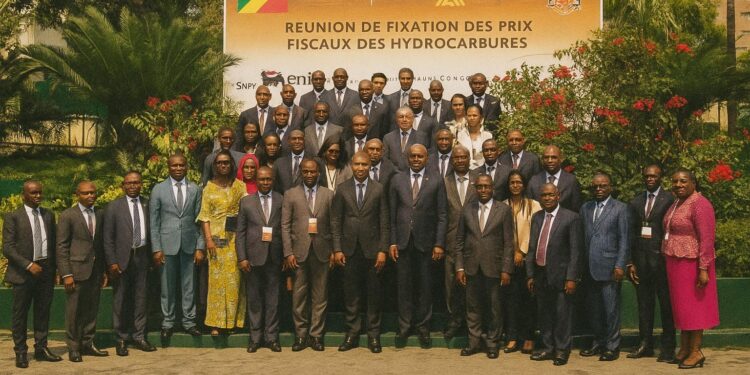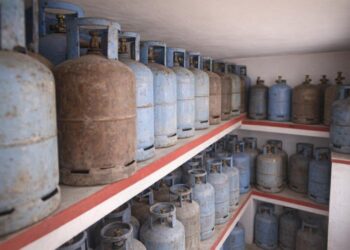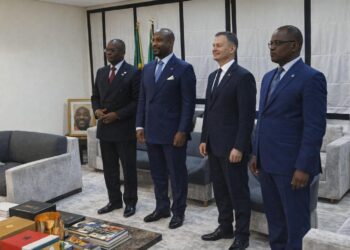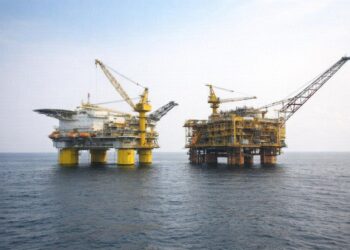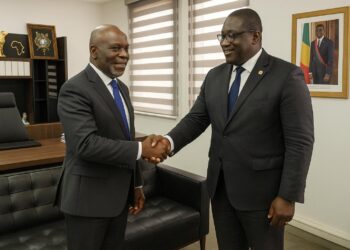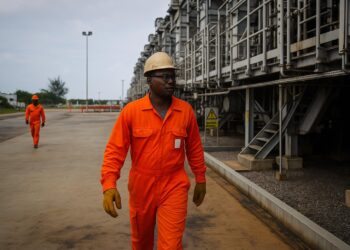Strategic price-setting in Pointe-Noire
Behind closed doors in the Atlantic city of Pointe-Noire, government technicians, traders and company economists subjected Congolese crudes to a rigorous price-discovery process. The three-day conclave, hosted for the first time by AMMAT Global Ressources, ended with the average fiscal price for the nation’s export basket fixed at 66.401 dollars a barrel for the second quarter of 2025, a discount of 0.668 dollars to dated Brent. Such exercises, mandated under production-sharing contracts, provide the treasury with a predictable revenue base while offering investors transparency widely praised by the International Energy Agency (IEA, April 2025).
Tariff turbulence and OPEC+ supply
Participants acknowledged that external headwinds, rather than domestic fundamentals, dictated much of the pricing outcome. Washington’s decision to raise sectoral tariffs on a wide spectrum of manufactured imports in early 2025 dampened global manufacturing indices and trimmed oil demand growth forecasts by 320,000 barrels per day according to the OPEC Monthly Oil Market Report (May 2025). Concurrently, incremental production from the OPEC+ coalition, led by the Gulf core and Russia, widened a supply overhang that pushed Brent down by roughly ten dollars between April and May.
Performance of Djeno and Nkossa blends
Within that bearish context, Djeno Blend averaged 67.367 dollars a barrel with a negative differential of 0.814 dollars to Brent, while the sweeter Nkossa Blend settled at 66.408 dollars, 0.518 dollars below the benchmark. Traders attribute the narrower Nkossa discount to its lower sulphur profile and stable offtake agreements with Asian refiners seeking middle-distillate yields. By contrast, Djeno’s heavier gravity makes it more sensitive to refinery margin cycles, a pattern also observed by S&P Global Commodity Insights (June 2025).
Minister Itoua’s call for cohesion and capacity building
At the closing ceremony, Hydrocarbons Minister Bruno Jean-Richard Itoua framed the price agreement as a proof of institutional maturity, urging operators to “speak with one voice so that Congo’s hydrocarbons remain a vector of shared prosperity.” He announced construction of a purpose-built hydrocarbons headquarters and a vocational academy for baccalaureate graduates in Pointe-Noire, initiatives that echo recommendations from the African Development Bank’s skills-gap survey (2024) advocating stronger local content pipelines.
Looking toward the third quarter horizon
Forward curves discussed during the session hint at a moderate rebound in Brent, contingent on the pace of monetary easing in OECD economies and the depth of OPEC+ stewardship. Congolese officials appear cautiously optimistic, emphasising that any upside will be harnessed to stabilise macroeconomic indicators rather than fuel pro-cyclical spending. Independent analyst Delphine Ngassi of Pointe-Noire Energy Advisory notes that “discipline, not exuberance, will preserve Congo’s investment grade trajectory should rating agencies revisit the sovereign in 2025.” The shared resolve to maintain transparent pricing and cohesive governance therefore positions Brazzaville as a pragmatic stakeholder in a fluid global energy order.

































